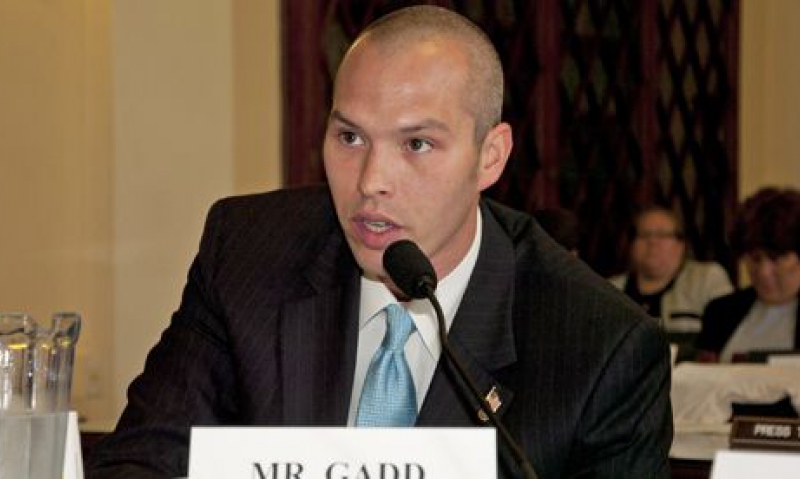
Legion official Jake Gadd attended a congressional hearing on legislation affecting homeless veterans, TBI and other service-related issues.
The American Legion testified in a Sept. 29 congressional hearing on pending and draft legislation related to veterans issues.
Bills discussed at the hearing, conducted by the House Veterans’ Affairs Subcommittee on Health, included legislation that would affect homeless veterans, the Federal Recovery Coordinator (FRC) program, rehabilitation services for veterans suffering from traumatic brain injury (TBI) and providing health care for veterans exposed to sodium dichromate.
One proposed bill, the Veterans’ Homelessness Prevention and Early Warning Act of 2010, aims to achieve VA Secretary Eric Shinseki’s goal to end homelessness among veterans by 2014. This legislation would require VA homelessness case managers to be notified whenever veterans default on their home loans, and allow case managers seven days to develop alternative housing plans if veterans lose their homes.
“This bill uses existing tools to assist veterans at risk of homelessness, so they have emergency shelter should they become homeless,” said American Legion official Jacob Gadd in his written testimony. “The American Legion fully supports this legislation since it helps to ensure no veteran spends the night on the streets as the result of losing a home.” Gadd is deputy director of The American Legion’s Veterans Affairs & Rehabilitation Division.
Addressing the FRC program, Gadd said it could be improved if VA established recovery coordinator training at qualified nursing or medical schools. Such a move would help to ensure proper coordination of care for servicemembers with severe injuries. The American Legion recommends that FRC staff be increased to one individual coordinator per state.
“The American Legion believes efforts to improve care coordination must be directed at not only the severely wounded, but any veteran transitioning to ensure they do not fall through the cracks,” Gadd told the subcommittee. “Currently, only those servicemembers diagnosed with traumatic brain injury, post-traumatic stress, visual impairment, amputation, burns or spinal cord injury are eligible for assistance through the program. The American Legion supports expansion of FRC program eligibility for any veteran transitioning from active duty, Guard or reserve for any illness or injury.”
Two amendments to Title 38, United States Code, were also considered: one (H.R. 6123) proposes to improve rehabilitation services for veterans suffering from TBI, and the other (H.R. 6127) aims to continue providing health-care services to veterans exposed to sodium dichromate during Operation Iraqi Freedom.
Gadd testified that, due to ambiguous wording in current law, VA treatment of TBI focuses too narrowly on the treatment of physical injuries, and that equal attention should be given to treatment of mental-health needs, which ensures greater comprehensive care.
Additionally, Gadd proposed to extend VA enrollment eligibility – by five years – for veterans exposed to sodium dichromate while guarding a water-injection facility in the contaminated Basrah oil fields at Qarmat Ali, Iraq. The facility was contaminated with sodium dichromate dust, which is associated with several health problems, including cancer and respiratory disease.
“Some of the Qarmat Ali veterans who separated from service following their deployment in 2003 may no longer be eligible to enroll in VA health care under the five-year open enrollment period Congress established for non-service connected veterans,” Gadd said. “H.R. 6127 would correct this unintended gap in services by extending the enrollment eligibility period for Qarmat Ali veterans for five years from the date of notification.”
- Legislative

